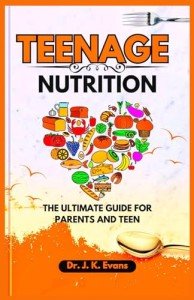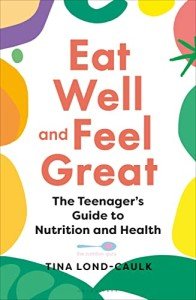Is Dieting Safe for Teenagers? Here’s the Truth
As the conversation around health and wellness continues to evolve, the topic of dieting for teenagers has become increasingly complex. While some may argue that a structured eating plan can help foster healthier habits, others caution against the potential risks and unintended consequences. Before encouraging a teenager to embark on a weight loss program, it's crucial to consider the unique physiological and psychological needs of this age group.
The Issue with Dieting for Teenagers
Teenagers are undergoing significant physical and hormonal changes as they transition into adulthood. Their bodies require proper nutrition to support growth, development, and overall well-being. Restrictive dieting during this crucial stage can disrupt this natural process and lead to various problems, including:
1. Physical Development Needs
- During adolescence, individuals experience rapid physical changes, including growth spurts and hormonal shifts. A balanced diet rich in nutrients is crucial for supporting these changes. Restrictive dieting can lead to deficiencies in essential vitamins and minerals, which may hinder growth and development. This could cause Stunted Growth and Development. Cutting certain food groups or severely limiting caloric intake can impede a teenager's ability to reach their full physical potential. Proper nutrients are essential for bone health, muscle growth, and organ development.
2. Balanced Nutrition over Restriction
- Instead of dieting in the traditional sense, teenagers should focus on developing healthy eating habits. This includes consuming a variety of foods from all food groups, emphasizing whole foods like fruits, vegetables, whole grains, lean proteins, and healthy fats. Rather than restricting calories, encouraging mindful eating can promote a healthier lifestyle. Otherwise it could lead to Nutrient Deficiencies. Overly restrictive diets may fail to provide the necessary vitamins, minerals, and macronutrients that support a teenager's needs. This can result in deficiencies that negatively impact energy levels, cognitive function, and overall health.
€165.78
€20.38
4.89 out of 5 starsTeen Nutrition: Essential Guide for Parents and Teens
A straightforward resource to help families navigate healthy eating habits together
Product information
Product Review Score
Product links
3. Disordered Eating Patterns:
- Rigid dieting often leads to an unhealthy preoccupation with food, weight, and body image. This can increase the risk of developing eating disorders, such as anorexia nervosa or bulimia, which can have severe long-term consequences.
4. Mental Health Considerations
- Teenagers are often susceptible to body image issues and eating disorders. Engaging in restrictive dieting can exacerbate these problems, potentially leading to conditions such as anorexia, bulimia, or binge eating disorder. It’s vital to prioritize mental well-being and develop a healthy relationship with food. This can lead to Psychological Distress.The social and emotional pressures faced by teenagers can be exacerbated by the added stress of dieting. Feelings of inadequacy, low self-esteem, and anxiety may arise, further compromising their mental well-being.
5. Positive Role Models
- Parents, teachers, and coaches play a significant role in shaping a teenager’s attitude toward food and body image. Promoting positive body image and encouraging healthy lifestyle choices, rather than focusing on dieting, can help create a supportive environment for teenagers.
6. Consult a Professional
- Before making significant dietary changes, it’s advisable for teenagers to consult with a healthcare professional, such as a doctor or registered dietitian. These professionals can provide personalized guidance based on the teenager’s individual needs, weight goals, and overall health.
7. Physical Activity
- Encouraging regular physical activity is essential for maintaining a healthy weight and supporting overall well-being. Instead of focusing solely on diet, teens should be encouraged to engage in physical activities they enjoy, which can improve both physical health and mental well-being.
8. Focus on Health, Not Weight
- Rather than concentrating on losing weight, teenagers should aim for overall health and well-being. This includes staying active, eating nutrient-dense foods, getting enough sleep, and managing stress. A health-centered approach is more sustainable and beneficial in the long run.
Teen Girls' Weight Loss Guide by The Woman Doctor
Empower your journey to a healthier you with expert tips and motivating strategies designed just for teen girls
Product information
€70.00
Product Review Score
4.42 out of 5 stars
163 reviewsProduct links
Potential Problems with Teenage Dieting
In addition to the issues mentioned above, teenage dieting can also lead to other problematic outcomes, including:
1. Disrupted Metabolic Function: Restrictive dieting can slow down a teenager's metabolism, making it harder to maintain a healthy weight in the long run. This can lead to a cycle of yo-yo dieting, which can be detrimental to overall health.
2. Social Isolation: Teenagers may feel excluded from social activities or events that revolve around food, leading to a sense of isolation and disconnection from their peers.
3. Impaired Academic Performance: The physical and emotional toll of dieting can negatively impact a teenager's ability to focus, concentrate, and perform well in school.
Addressing Weight Concerns Constructively
Instead of encouraging strict dieting, it is crucial to take a holistic approach to supporting a teenager's health and well-being. Some more constructive strategies include:
1. Promoting Balanced Nutrition: Encourage a balanced diet that emphasizes whole, nutrient-dense foods, without eliminating entire food groups.
2. Fostering Positive Body Image: Engage in open discussions about body positivity, self-acceptance, and the diversity of human bodies.
3. Encouraging Regular Physical Activity: Recommend engaging in enjoyable physical activities that promote overall fitness, rather than solely focusing on weight loss.
4. Seeking Professional Support: If a teenager is struggling with weight-related issues or disordered eating, consider consulting with a healthcare provider, registered dietitian, or mental health professional for personalized guidance.
Teen's Guide to Healthy Eating and Wellness
Empower your teen with essential knowledge for making nutritious choices and fostering a balanced lifestyle
Product information
€8.05
Product Review Score
4.46 out of 5 stars
28 reviewsProduct links
Conclusion
Dieting, as it is traditionally understood, can be risky for teenagers due to their unique developmental needs and the potential for negative psychological impacts. Instead of following restrictive diets, it’s better to encourage healthy eating habits, physical activity, and self-acceptance. If a teenager is considering dietary changes for health or weight management, it’s essential to involve a healthcare professional to ensure they are safe and appropriate for their specific situation.
Promoting a balanced, nutritious diet and a healthy lifestyle will not only support physical health but also foster a positive relationship with food and body image.The teenage years are a delicate and formative time, and the decision to engage in a weight loss program should be made with great care and consideration. By prioritizing overall health and well-being, and avoiding the potential pitfalls of restrictive dieting, teenagers can develop a positive and sustainable relationship with food, their bodies, and their overall quality of life.
Discover nutrient-rich health foods















